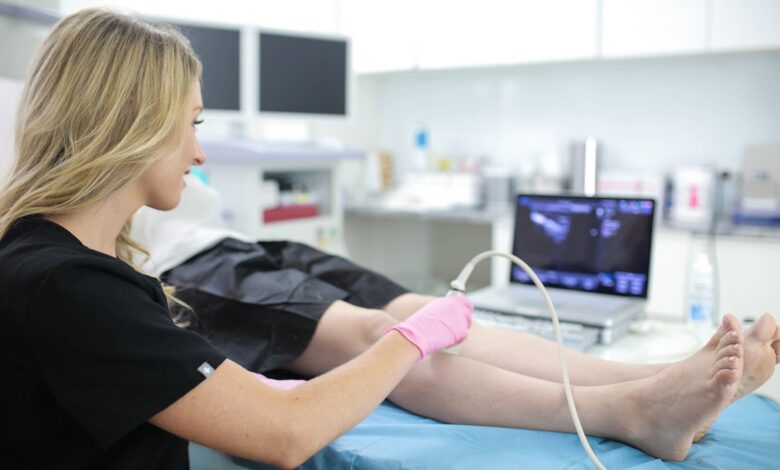What is a Varicose Vein Specialist Called?

Varicose veins are a common condition that affects millions of people worldwide. These twisted, enlarged veins can cause discomfort, pain, and even more serious health issues if left untreated. Fortunately, there are medical professionals who specialize in diagnosing and treating this condition. But what is a varicose vein specialist called, and what are the advantages of seeking their expertise?
Understanding Varicose Veins
Varicose veins occur when veins become enlarged and overfilled with blood. They typically appear swollen, raised, and have a bluish-purple or red color. This condition often affects the legs and is caused by weakened valves and veins in your legs. When the valves don’t work properly, blood collects in the legs, and pressure builds up, leading to varicose veins.
What is a Varicose Vein Specialist Called?
A varicose vein specialist is commonly known as a phlebologist. Phlebologists are medical doctors who specialize in the diagnosis and treatment of vein disorders, including varicose veins and spider veins. They have extensive training in the vascular system and are equipped with the knowledge and skills to manage and treat venous diseases effectively.
The Role of a Phlebologist
Phlebologists play a crucial role in the management of varicose veins. They use a variety of diagnostic tools and treatment methods to help patients find relief from their symptoms. Here are some of the key responsibilities and roles of a phlebologist:
Diagnosis
Phlebologists use several diagnostic techniques to assess the severity and extent of varicose veins. These may include:
- Ultrasound: A non-invasive imaging technique that uses sound waves to visualize blood flow and identify vein abnormalities.
- Physical Examination: A thorough examination of the affected area to check for visible signs of varicose veins.
- Venography: An X-ray test that involves injecting a contrast dye into the veins to make them visible on the X-ray image.
Treatment
Once the diagnosis is confirmed, phlebologists offer a range of treatment options depending on the severity of the condition. Common treatments include:
- Sclerotherapy: A procedure in which a solution is injected into the varicose veins, causing them to collapse and fade over time.
- Laser Therapy: The use of laser light to heat and damage the vein, which causes it to close and eventually disappear.
- Radiofrequency Ablation: A minimally invasive procedure that uses radiofrequency energy to heat and close off the varicose veins.
- Endovenous Laser Therapy (EVLT): A treatment that involves inserting a laser fiber into the vein to deliver targeted heat, causing the vein to close.
- Surgery: In severe cases, surgical procedures such as vein stripping or ligation may be necessary to remove or close the affected veins.
Advantages of Seeing a Phlebologist
Seeking the expertise of a phlebologist offers numerous advantages for individuals suffering from varicose veins. Here are some of the key benefits:
Specialized Knowledge and Expertise
Phlebologists have specialized training in venous diseases, making them experts in diagnosing and treating varicose veins. Their in-depth knowledge allows them to provide accurate diagnoses and tailor treatment plans to meet the unique needs of each patient.
Comprehensive Treatment Options
Phlebologists offer a wide range of treatment options, from minimally invasive procedures to surgical interventions. This ensures that patients receive the most appropriate and effective treatment for their specific condition.
Minimally Invasive Procedures
Many of the treatments offered by phlebologists are minimally invasive, meaning they require only small incisions or injections. These procedures typically have shorter recovery times, less pain, and lower risk of complications compared to traditional surgical methods.
Improved Quality of Life
Effective treatment of varicose veins can significantly improve a patient’s quality of life. By alleviating symptoms such as pain, swelling, and heaviness in the legs, patients can return to their normal activities with greater comfort and ease.
Prevention of Complications
Untreated varicose veins can lead to serious complications, including blood clots, ulcers, and chronic venous insufficiency. By seeking treatment from a phlebologist, patients can prevent these complications and maintain better overall vascular health.
How to Choose the Right Phlebologist
Choosing the right phlebologist is crucial for receiving the best possible care for varicose veins. Here are some tips to help you find a qualified and experienced specialist:
Check Credentials
Ensure that the phlebologist is board-certified and has the necessary training and credentials in venous diseases. Look for affiliations with reputable medical organizations and societies.
Experience Matters
Experience is key when it comes to treating varicose veins. Ask about the phlebologist’s experience with the specific treatments you are considering and inquire about their success rates and patient outcomes.
Read Reviews and Testimonials
Patient reviews and testimonials can provide valuable insights into the quality of care provided by the phlebologist. Look for feedback from previous patients to gauge their satisfaction with the treatment and overall experience.
Consultation
Schedule a consultation with the phlebologist to discuss your condition and treatment options. Use this opportunity to ask questions, assess their communication style, and determine if you feel comfortable with their approach.
Technology and Facilities
Ensure that the phlebologist uses state-of-the-art technology and facilities for diagnosing and treating varicose veins. Advanced equipment and modern techniques can enhance the effectiveness and safety of the treatments.
Conclusion
Varicose veins can be a painful and uncomfortable condition, but with the help of a varicose vein specialist, also known as a phlebologist, effective treatment is within reach. Phlebologists are experts in diagnosing and treating venous diseases, offering a range of minimally invasive procedures that can improve quality of life and prevent complications. By choosing a qualified and experienced phlebologist, individuals with varicose veins can find relief from their symptoms and enjoy healthier, more comfortable lives.
If you or someone you know is suffering from varicose veins, don’t hesitate to seek the expertise of a phlebologist. With their specialized knowledge and advanced treatment options, they can provide the care and support needed to manage and treat this common condition effectively.



